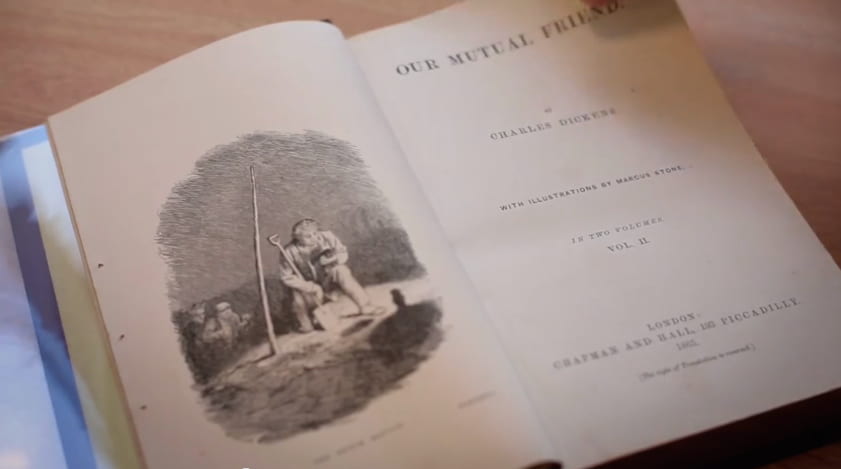NAI scholars, Karen, 17, and Kenia, 18, from Foshay Learning Center, have won this year’s nationwide Dickens Project essay competition. The students attended Dickens Universe at UC Santa Cruz where they joined faculty and graduate students from major American and international universities for a week long conference centered around one of Dickens’ work, this year’s selection being his last published novel, Our Mutual Friend.
Listen to their interview on KPCC 89.3 with Patt Morrison.
The LA Times interviewed and featured their stories.
By Sara Hayden
Amid Victorian high tea and lengthy talks about literature, two young women from South Los Angeles recently found themselves at the center of the universe — the Dickens Universe.
Scholars of Charles Dickens and enthusiasts from the public recently dived deep into conversations at UC Santa Cruz not only about “Our Mutual Friend,” the chosen novel for the annual conference, but also original essays by 18-year-old Kenia Coyoy and 17-year-old Karen Molina. They are the first students from the Los Angeles Unified School District to win the high school essay contest, which drew entries from across the U.S. and beyond. The contest is sponsored by the Dickens Project, a consortium of international scholars who study the 19th century author.
It wasn’t easy, Kenia said; there were moments she wanted to give up on the book, which is more than 800 pages and explores the allure and complications of money through a cast of characters spanning a stratified society.
“Sometimes in my community we’re told that we shouldn’t want to do these things because they’re so far out there,” Kenia said. “I wanted to prove to myself and my community that I could do this.”
She said this gave her the spark she needed to pen her winning piece, “What Lies Beneath the Dust: The Duality of Deception in ‘Our Mutual Friend.'”
Kenia and Karen, students at the Foshay Learning Center in Exposition Park, were rewarded with an all-expenses-paid trip to the weeklong conference.
Their win was the result of months of poring over the novel, exploring its central themes and dissecting passages word by word in an AP English class taught by Jacqueline Barrios.
“We’ve always wanted to be part of this discourse,” Barrios said. “Now here we are at the Universe with professors from UCLA and Berkeley … talking about Dickens.”
The students will be the first in their families to attend college; Kenia will attend UCLA this fall to study cognitive science, and Karen is enrolling at USC to pursue journalism.
The Dickens Universe academic conference is a taste of the life that awaits them in the fall, according to Kim Thomas-Barrios, executive director of the USC Neighborhood Academic Initiative. Karen and Kenia are alumni of the program, which prepares low-income and first-generation college students for higher education.
“It doesn’t matter where you’re from, and where you’ve been. Your voice and interpretation are just as valid as anyone else’s,” said Thomas-Barrios.
Some threads of their lives neatly intertwined with those in the book even though it takes place worlds away in Victorian England, Kenia and Karen said; it’s because Dickens wrote about the human condition and issues that still affect society today.
Karen said she saw her mother, who raised her as a single parent, in the independence and strength of the character Betty Higden, who steadfastly cares for children and fights for their well-being. The character inspired her essay, “British Independence, Rather Perverted: The Problematic Independence of Betty Higden in Charles Dickens’ ‘Our Mutual Friend.'”
“I hope people see that Hispanic children from South L.A. can not only read Dickens but relate to it and become one with the literature,” Karen said.

Jon Michael Varese, director of digital initiatives for the Dickens Project, said Kenia’s and Karen’s essays were some of the best he’s seen in the nine years that the contest has been held.
“As someone who’s studied Dickens for more than 20 years, there are times I feel like I’ve seen everything. But then you read the work of the next generation and you are just blown away,” Varese said. “After 150 years … this book still has something to say to people.”
